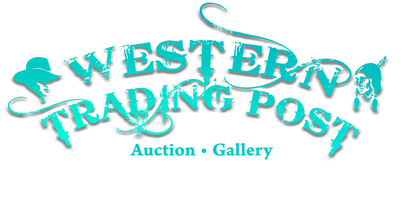Collector’s Corner— Authenticating Collectibles
Posted by Jim Olson on Apr 23rd 2020
When you have a collection of potentially valuable items, especially if they have some sort of historical significance, authentication is very important. Just to know your items are authentic, and not fakes or re-pops, is important even if you are not looking to sell. Being able to accurately know and represent what is in our collections is important. But how do we go about that?
The first, basic rule, is collectors should save any documentation, photos and receipts from the original purchase if possible. When you buy an item, get a detailed receipt if possible. A detailed receipt from a reputable dealer is often considered a good form of provenance. If it is a historical item and there are photos or a paper trail of where it came from, this is extremely important. Sometimes however, items are inherited or come as gifts. But it is still necessary to write down as much as you know about what was passed down with the item and save it with the piece.
The next way to get items authenticated is to find an expert in the field and reach out to them. Getting a letter or certificate of authenticity from a recognized leader, or expert in the field, is considered a good form of provenance. Talk to several if you can. Try to learn from them while you are at it.
Another good way to get authentication is to contact reputable dealers and collectors in the area or field that your collectible falls into. These are often the same people as would be considered the “experts” from the paragraph above, but it is always good to get several opinions and dealers are often the ones handling items similar to yours on a daily basis.
Another way, and I say this with caution, is to do your own research online. The internet is a wide and wonderful world of information. When you find items like yours, print out or save the information. However, I throw in the note of caution because you will also find a lot of misleading information on the internet. Every day people come to us and have an item and say they seen one “just like it online” and that it was selling it for $____ . First off, make sure what you are seeing online is indeed, “just like yours,” and secondly, remember that anyone can ask for anything online, that does not mean that is what it actually “sells for.” Or even that it, is actually what it is.
I recommend after you do your research online, to take the information and go to a recognized expert, dealer or collector and and let them help you with identifying what you actually have, compared to what you found online.
Why use an expert and what makes someone an expert? It is always best to find someone who knows what they are talking about when searching for an expert opinion. However, you should know there are a lot of self-professed experts out there who looked at a few pictures online and now think they know everything. What you are actually looking for is someone who has handled a lot of those types of items in the past and preferably is still in the business of handling them. Not only handled them, but also has studied them. They have read all the books, talked to others who are recognized in the area of expertise, etc. etc.. I like to use the analogy about a guy who really, really, knows about motorcycles. An expert on motorcycles can tell the difference between a Harley and a Honda from a mile away. While the average person just sees two motorcycles coming. That is, until some of the obvious differences are pointed out. The expert knows the differences at a glance and can tell you the difference in price, collectibility—and why.
Offer to pay the expert for their services. It is the right thing to do. A lot of experts may not charge for identifying things or giving letters of certification (in some cases perhaps if they are doing other business with you or they hope this will lead to future business), but do not expect that. For example, if you take a car you are considering buying or selling to a mechanic for an inspection, wouldn’t you expect them to charge? When you take a horse to the vet for a pre-sale inspection, does he not usually charge? If someone asked you to preform what ever it is that you do for a living, would you not expect them to pay for your services? Most of the time, the answer is yes. So we should expect to pay an expert for authentication services as well.
One quick note about “experts.” Remember that if you ask 10 different “experts” for an opinion, you will likely get 10 slightly different answers. And maybe only half of them are very accurate! That is just human nature and the way of the world with people’s opinions. So do your own research. Also research the “experts” and talk to the ones you feel you can trust. Sometimes it is a collaboration of several sources which gives you the best totality of information.
Remember that in the world of buying and selling collectibles, provenance is everything. Especially with regards to the more rare and valuable items. The better the paper trail, the more the item will sell for, or will be valued at. So search out the history, get the provenance and keep it with your items. It is important.
Jim Olson © 2019
